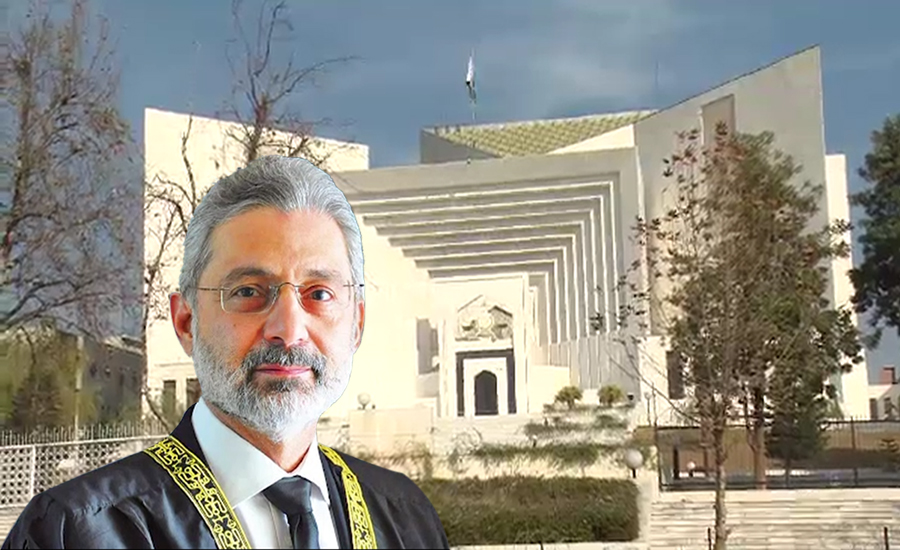Justice Qazi Faez Isa is real owner of three properties in UK, Attorney General tells SC

ISLAMABAD (92 News) – Attorney General Anwar Mansoor Khan submitted the reply to the Supreme Court in the reference against Justice Qazi Faez Isa.
He, in the reply, stated that Justice Qazi Faez Isa is real owner of three properties in United Kingdom. “Justice Qazi Faez Isa’s children are ‘benamidar’ and are reluctant to disclose the sources of purchasing the property,” he said.
He also sought exemption for President Dr Arif Alvi and Prime Minister Imran Khan. “Being the Attorney General, it is my responsibility to assist the Supreme Judicial Council,” he said.
Attorney General Anwar Mansoor Khan said the distribution of cheques among the bar councils by the law minister is not wrong. “The allegations of Justice Faez Qazi Isa are just based on assumptions. Accountability and transparency are part of democracy. No one is exempted from accountability,” he said.
The attorney general contended that Justice Qazi Faez Isa’s application is non-maintainable.
On Wednesday, the government had requested the Supreme Court to reject Justice Qazi Faez Isa’s challenge to the filing of a reference against him since it was filed in a lawful manner and did not in any way undermine the independence of the judiciary.
A 45-page rejoinder, furnished by the government, argued that the process of accountability of judges by their own peers enhanced the independence of the judiciary and President Arif Alvi had moved the reference in exercise of his constitutional duties under Article 209(5) of the Constitution.
It emphasized that the reference against Justice Faez Isa of the Supreme Court was moved without any mala fide intention, malice or ulterior motives or to achieve any collateral purposes. It argued that the filing of the reference by the president after forming an opinion on the advice of the prime minister could not be inquired into under Article 48(4) of the Constitution by the Supreme Court.
“All actions are in accordance with the command of the Constitution and that the reference has been sent to the peers of the petitioner judge for inquiry and nothing else. It contended that the judges could not be equated with ordinary mortal human beings since they were required to possess highest quality of intellect and depict sterling character. The accountability process is to keep the stream of justice pure and unsullied so that the confidence of the people in the judiciary remains intact,” the reply explained, adding that it was for the independence of the judiciary that the framers of the Constitution decided to constitute a constitutional body comprising senior-most judges of the Supreme Court and of high courts to conduct accountability of their own peers.
Moreover, it said, the petitioner judge by filing the current petition was trying to politicise the issue so that an inquiry, a constitutional obligation of the SJC, could not be conducted. The fact that the petitioner judge was a tax filer and paid substantial amount of income tax did not in any way prove that the properties in the UK were not owned by him, the reply argued. “Thus, the only way the petitioner judge can deny the ownership of the properties is to establish independent source of income of his wife and children and by disclosing their financial position at the time of purchase of the properties,” it said.
The reply denied that the reference in anyway destroyed the independence of the judiciary or made it subservient to the executive or amounted to subverting the Constitution.
Moreover, it said, the jurisdiction under Article 184(3) of the Constitution was a qualified jurisdiction which required that a question should be of public importance regarding violation of the fundamental rights.







